Introduction
Choosing the best fabric for T-Shirts is more important than you might think. The fabric determines how comfortable, breathable, durable, and stylish the t-shirt will be. Whether you’re wearing it for a casual day out, working out, or lounging at home, selecting the right material can make all the difference.
Table of Contents
In this article, we’ll explore the best fabrics for t-shirts and what makes them stand out. By the end, you’ll have a clearer idea of which fabric will suit your needs the best.
Factors to Consider When Choosing a Fabric for T-Shirts
Comfort
Comfort is the primary factor when choosing a fabric for a t-shirt. The softness of the fabric and its stretchability impact how the t-shirt feels on your skin. Some fabrics, like cotton and modal, are known for their softness, while others, like polyester, offer more structure but may feel less soft. The fabric’s weight also influences comfort—lighter fabrics are great for warmer weather, while heavier fabrics provide warmth in cooler climates.
Breathability and Moisture-Wicking
Breathability refers to how well air passes through the fabric, which helps regulate body temperature. Natural fibers like cotton and linen are highly breathable, making them ideal for hot climates. Moisture-wicking fabrics, such as polyester and tri-blends, are designed to draw sweat away from the skin, making them perfect for sports and activewear.
Durability
Durability is crucial, especially for t-shirts that will see frequent wear and washing. Fabrics like polyester and cotton-polyester blends are known for their longevity, retaining their shape and color after multiple washes. In contrast, some natural fibers, like cotton, may shrink or fade over time unless properly cared for.
Style and Fit
The choice of fabric also impacts the fit and style of a t-shirt. Some fabrics provide a more structured look, while others drape smoothly over the body. For instance, tri-blends and rayon offer a soft, flowing fit, perfect for casual and fashion-forward t-shirts. Meanwhile, thicker cotton or polyester fabrics offer a more classic and structured silhouette.
Best Fabrics for T-Shirts
| Fabric Type | Key Features | Ideal Uses | Durability | Comfort Level |
|---|---|---|---|---|
| Cotton | Soft, breathable, hypoallergenic | Everyday wear, casual outfits | High | Very comfortable |
| Polyester | Moisture-wicking, wrinkle-resistant | Sportswear, activewear | Very high | Comfortable |
| Cotton-Polyester Blend | Combines softness & durability, stretchable | Workwear, casual, activewear | High | Comfortable |
| Bamboo | Eco-friendly, antibacterial, soft | Premium, sustainable t-shirts | High | Very comfortable |
| Linen | Lightweight, quick-drying, breathable | Summer wear, beach t-shirts | Moderate | Comfortable |
| Tri-Blend (Cotton, Polyester, Rayon) | Soft, lightweight, modern fit | Premium fashion t-shirts | High | Very comfortable |
| Wool | Warm, moisture-absorbing, odor-resistant | Winter t-shirts, layering pieces | High | Moderate |
Cotton
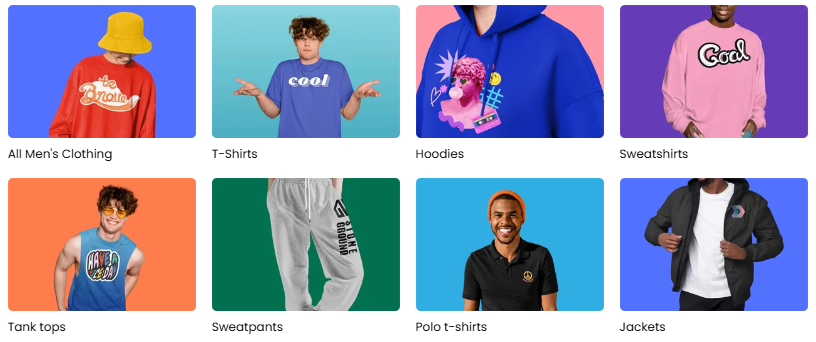


Overview: Cotton is by far the most popular fabric for t-shirts. Its natural softness and breathability make it a favorite for everyday wear.
- Key features: Soft, breathable, and hypoallergenic
- Best for: Casual, everyday wear
- Pros: Comfortable, breathable, and widely available in various styles
- Cons: Prone to shrinking and wrinkling
Organic Cotton
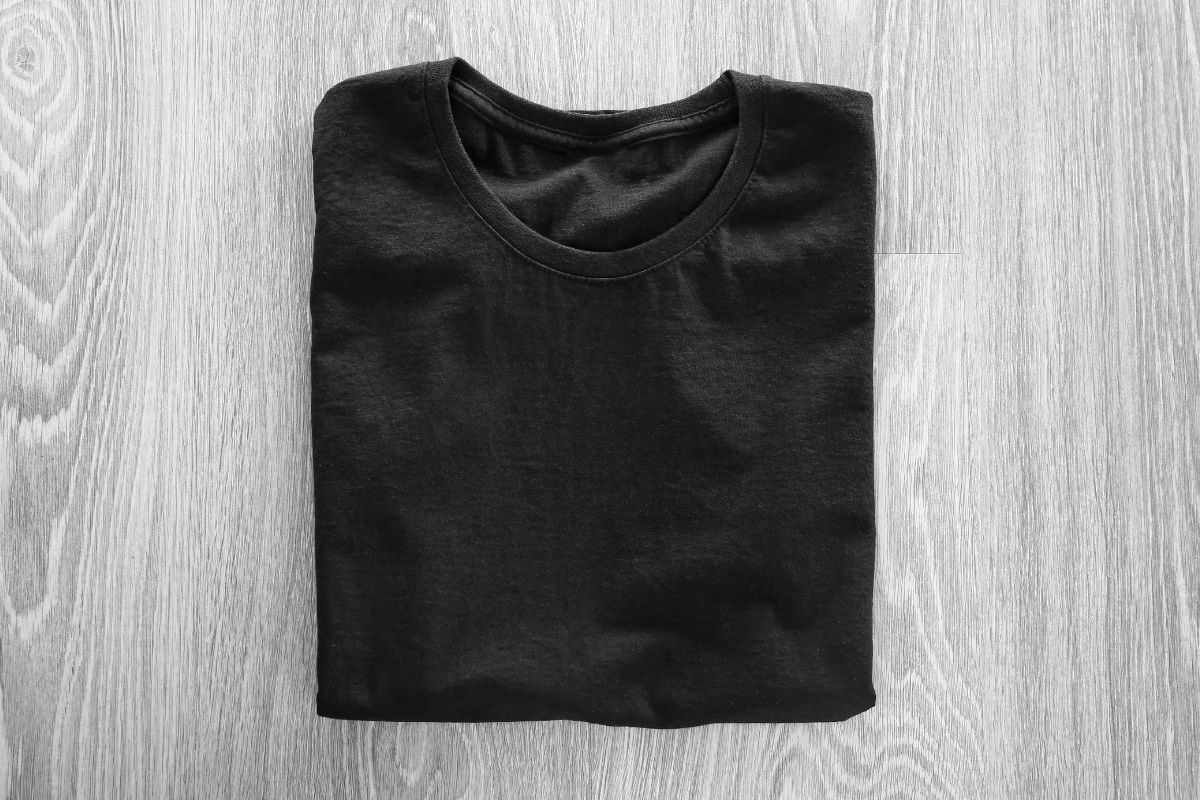
Overview: Organic cotton is an eco-friendly alternative to regular cotton. It’s grown without the use of harmful pesticides, making it a better choice for the environment and sensitive skin.
- Key features: Grown without chemicals, softer than conventional cotton
- Best for: Eco-conscious buyers, people with sensitive skin
- Pros: Sustainable, soft, and comfortable
- Cons: Slightly more expensive than regular cotton
Polyester
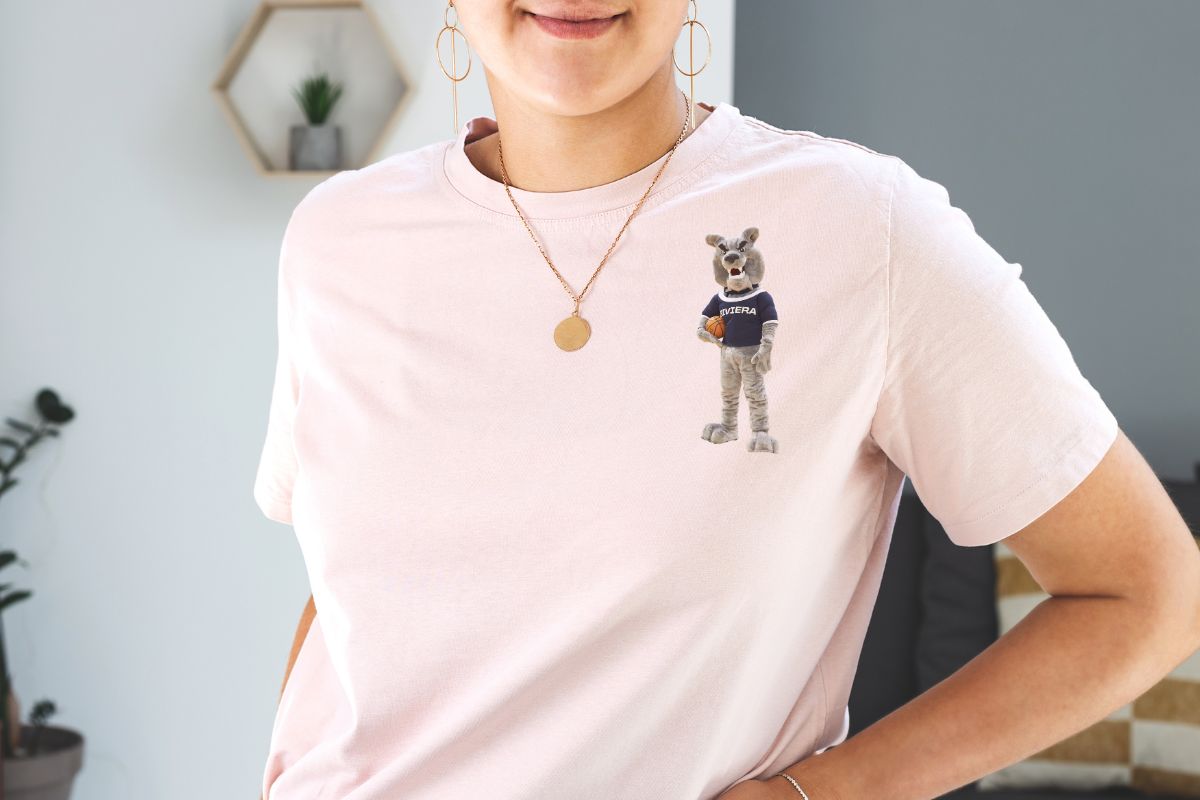
Overview: Polyester is a synthetic fiber that is popular for its durability and moisture-wicking properties. It is often used in sportswear and t-shirt blends.
- Key features: Wrinkle-resistant, moisture-wicking, and quick-drying
- Best for: Athletic wear and activewear
- Pros: Long-lasting, retains shape, and dries quickly
- Cons: Less breathable and not as soft as natural fibers
Cotton-Polyester Blends
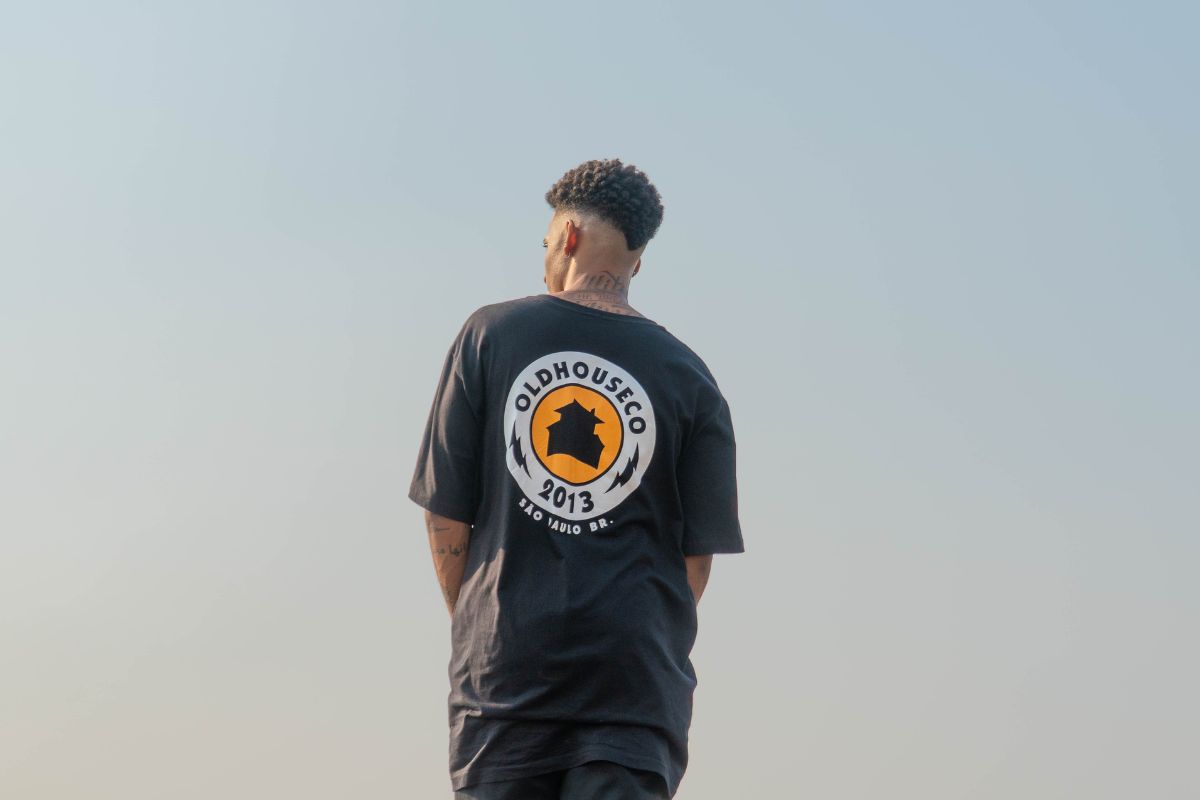
Overview: A cotton-polyester blend combines the softness of cotton with the durability and moisture-wicking properties of polyester, making it a versatile choice.
- Key features: Soft, durable, and wrinkle-resistant
- Best for: Casual and athletic t-shirts
- Pros: Shrink-resistant, holds color well, comfortable
- Cons: Less breathable than pure cotton
The all-in-one Platform to start a
Print on Demand & Dropshipping Business.
Tri-Blend (Cotton, Polyester, Rayon)
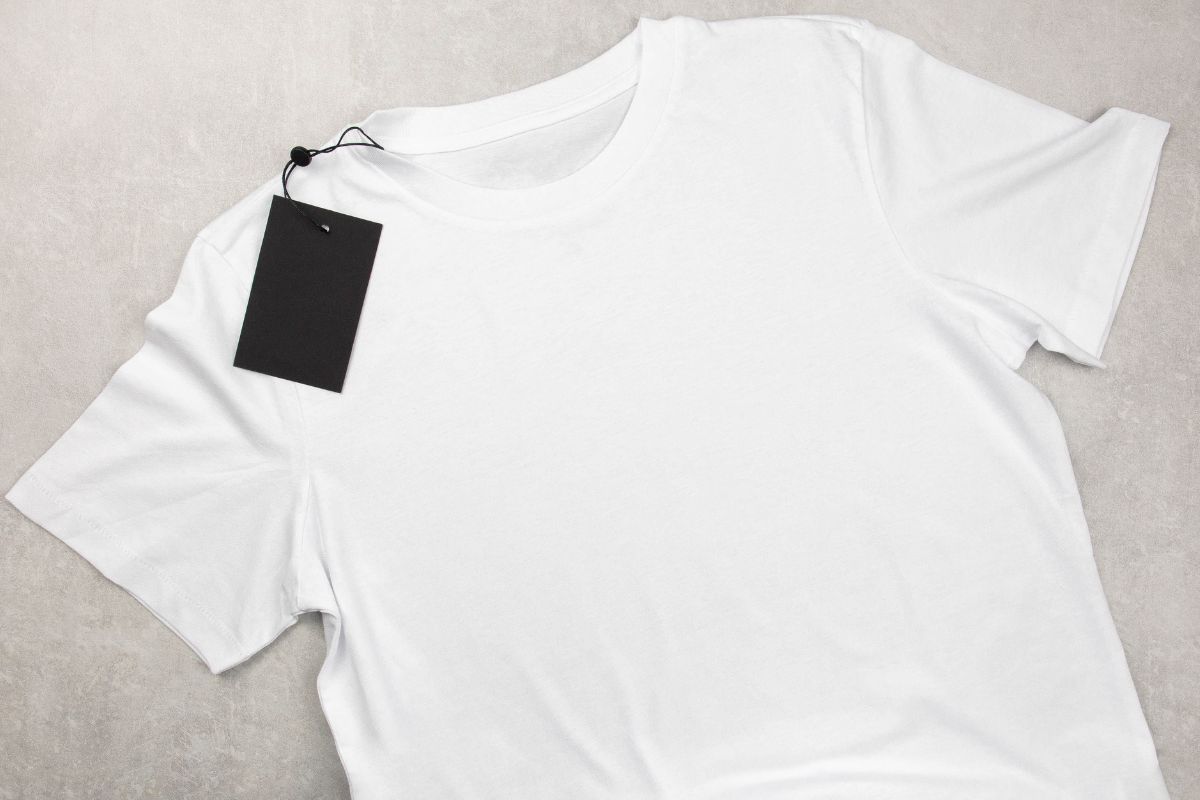
Overview: Tri-blend fabrics offer a soft and lightweight feel by combining cotton, polyester, and rayon. This fabric is often used for vintage-style t-shirts.
- Key features: Soft, stretchy, and breathable
- Best for: Casual wear, vintage-style t-shirts
- Pros: Extremely soft, drapes well, retains shape
- Cons: Not as durable as 100% cotton or polyester blends
Linen

Overview: Linen is a natural fiber known for its excellent breathability, making it a great option for warm-weather t-shirts.
- Key features: Light, breathable, and dries quickly
- Best for: Summer wear, casual t-shirts for hot climates
- Pros: Highly breathable, comfortable in heat, dries quickly
- Cons: Wrinkles easily, less soft than cotton
Bamboo
| Bamboo T-Shirt Pros | Bamboo T-Shirt Cons |
|---|---|
| Eco-friendly: Bamboo is a renewable and sustainable resource. | Costly: Generally more expensive than cotton or polyester. |
| Soft and Comfortable: Feels smooth like silk, ideal for sensitive skin. | Wrinkles Easily: Requires careful handling and ironing. |
| Breathable: Allows air circulation, keeping you cool. | Limited Availability: Not as widely available as cotton. |
| Moisture-Wicking: Absorbs and evaporates sweat quickly. | Processing Concerns: Some bamboo fabrics involve chemical processes. |
| Antibacterial: Naturally resists odors and bacteria growth. | Not Always 100% Bamboo: Often blended with other materials. |
| UV Protection: Offers protection from harmful UV rays. | Less Durable: Can wear out faster with frequent use and washing. |
Overview: Bamboo fabric is an eco-friendly option that is soft, moisture-wicking, and naturally antibacterial.
- Key features: Soft, breathable, and sustainable
- Best for: Eco-conscious consumers, casual and active t-shirts
- Pros: Hypoallergenic, soft, and eco-friendly
- Cons: More expensive than other fabrics
Modal
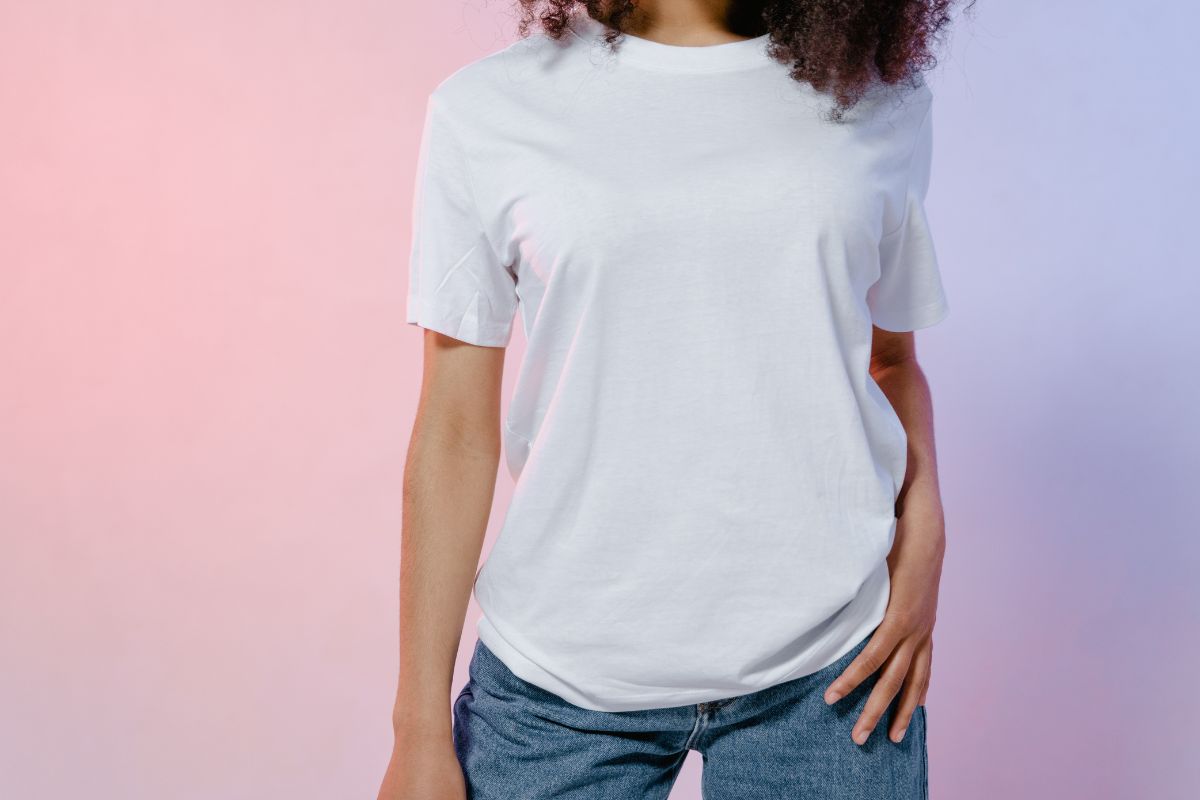
Overview: Modal is a semi-synthetic fabric made from beech tree pulp. It’s prized for its smooth texture and durability.
- Key features: Soft, absorbent, and holds dye well
- Best for: Premium t-shirts, casual wear
- Pros: Silky texture, resists shrinking and fading
- Cons: Expensive compared to cotton
Rayon
| Rayon T-Shirt Pros | Rayon T-Shirt Cons |
|---|---|
| Soft and Smooth: Offers a luxurious, silky texture. | Not Durable: Prone to wear and tear over time. |
| Breathable: Lightweight and airy, perfect for warm weather. | Requires Special Care: Needs hand washing or dry cleaning. |
| Drapes Well: Falls nicely on the body for a stylish fit. | Prone to Wrinkling: Easily creases and needs frequent ironing. |
| Versatile: Suitable for casual, active, or semi-formal wear. | Absorbs Moisture: Can become heavy and uncomfortable when wet. |
| Affordable: Usually cheaper than premium fabrics like silk. | Environmental Concerns: Production can involve harmful chemicals. |
Overview: Rayon is another semi-synthetic fabric, known for its soft and lightweight feel.
- Key features: Soft, breathable, and has good drape
- Best for: Fashion t-shirts and lightweight summer wear
- Pros: Lightweight, comfortable, and soft
- Cons: Can wrinkle easily and is less durable
Best Fabric for Different T-Shirt Uses
| T-Shirt Use | Best Fabrics | Benefits |
|---|---|---|
| Everyday Casual Wear | Cotton, Cotton-Polyester Blend | Comfortable, easy to maintain, available in a variety of colors and styles. |
| Activewear and Sports | Polyester, Moisture-Wicking Fabrics | Keeps you dry, durable for intense activities, and withstands frequent washing. |
| Eco-Friendly and Sustainable | Organic Cotton, Bamboo, Linen | Sustainable, breathable, and eco-conscious options. |
| Premium T-Shirts | Modal, Tri-Blend (Cotton, Polyester, Rayon) | Soft, luxurious finish, perfect for high-end, comfortable t-shirts. |
Everyday Casual Wear
For daily wear, you can’t go wrong with cotton or a cotton-polyester blend. These fabrics are comfortable, easy to maintain, and available in a wide range of colors and styles.
Activewear and Sports
For athletic t-shirts, polyester and moisture-wicking fabrics are the top choices. They keep you dry during intense activities and are durable enough to handle frequent washing.
Eco-Friendly and Sustainable Options
If you’re eco-conscious, organic cotton, bamboo, and linen are excellent choices. They offer a balance between comfort and environmental responsibility.
Premium T-Shirts
For a more luxurious feel, opt for modal or tri-blend fabrics. These materials offer a soft, high-quality finish perfect for premium t-shirts.
Frequently Asked Questions (FAQ)
Q1: What is the softest fabric for t-shirts?
The softest fabrics for t-shirts include modal, bamboo, and tri-blends. These materials are known for their silky-smooth feel and comfort.
Q2: What fabric is best for athletic t-shirts?
Polyester and polyester blends are ideal for athletic t-shirts. They are moisture-wicking, durable, and dry quickly, making them perfect for sports and activewear.
Q3: How do I choose the right fabric for my t-shirt?
Consider the purpose of the t-shirt. For casual wear, cotton is a great option. For sports, opt for polyester or moisture-wicking blends. If sustainability is a priority, organic cotton or bamboo are excellent choices.
Q4: Is organic cotton better than regular cotton?
Yes, organic cotton is grown without harmful pesticides, making it better for the environment and for people with sensitive skin. It’s often softer as well.
Q5: Which fabric is best for summer t-shirts?
Linen and cotton are the best fabrics for summer t-shirts due to their lightweight and breathable qualities. These fabrics help keep you cool in warm weather.
Conclusion
Choosing the best fabric for your t-shirt comes down to your specific needs. For everyday comfort, cotton is the go-to choice, while polyester and blends are ideal for activewear. If sustainability is a priority, organic cotton, bamboo, or linen offer eco-friendly alternatives. Finally, for a premium feel, fabrics like modal or tri-blend provide unmatched softness and style. With so many options available, you can find the perfect fabric that suits your lifestyle, climate, and personal preferences.

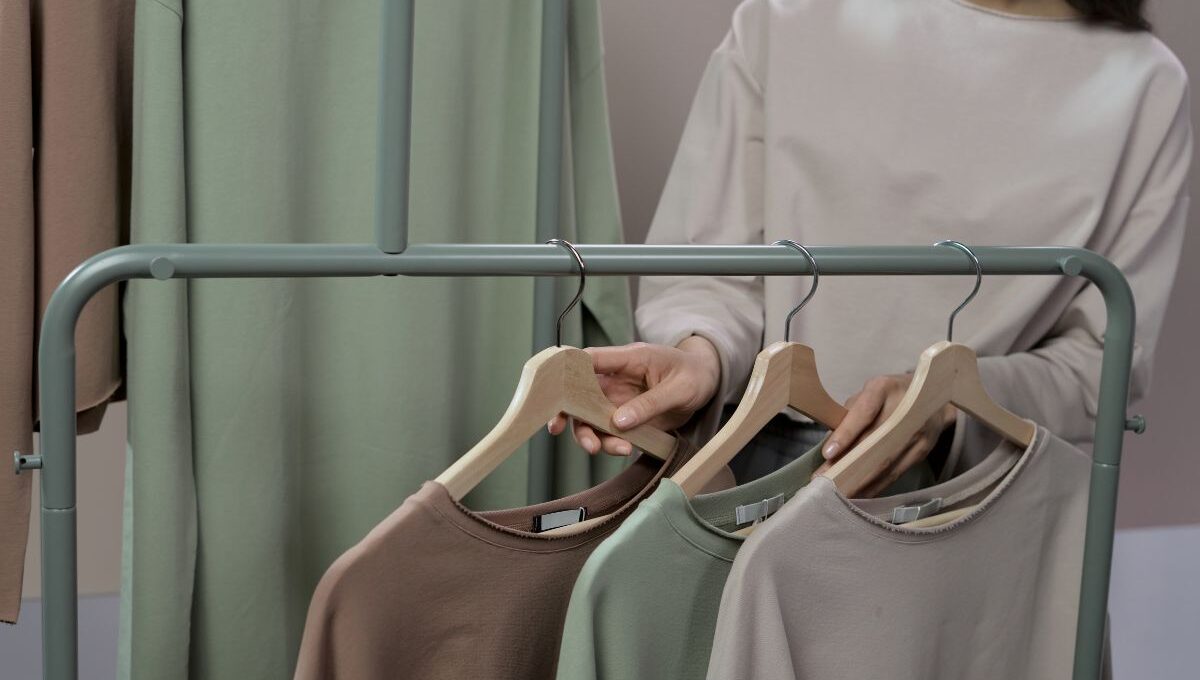
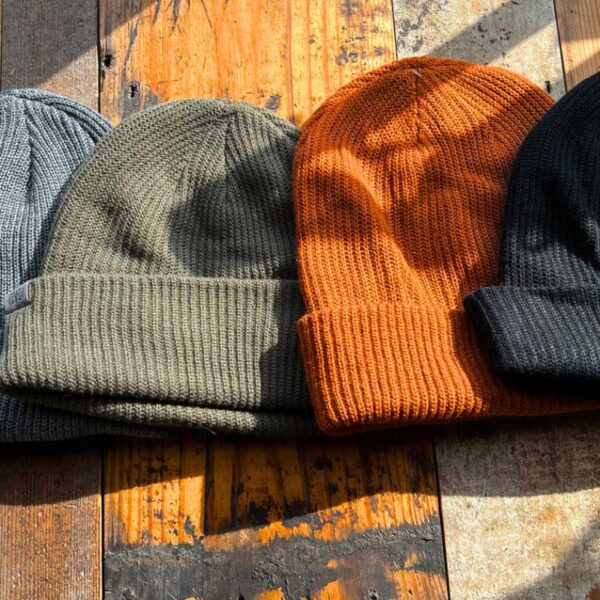

Sign up